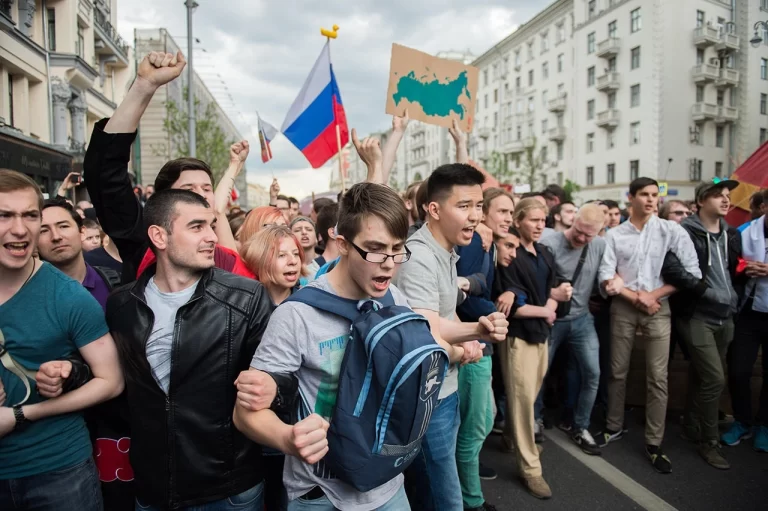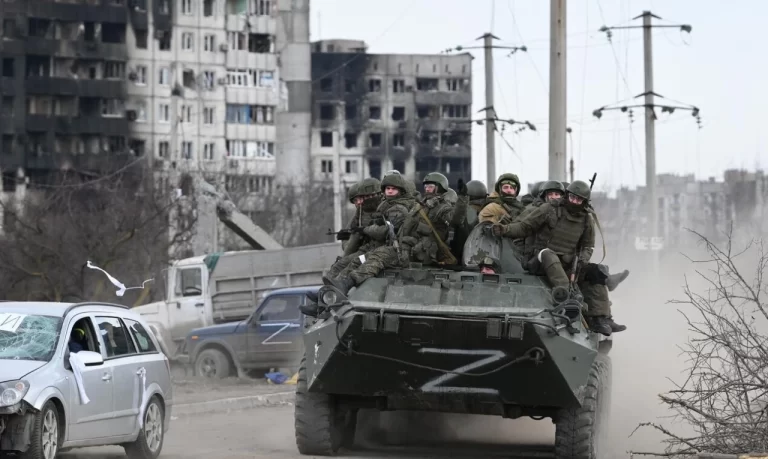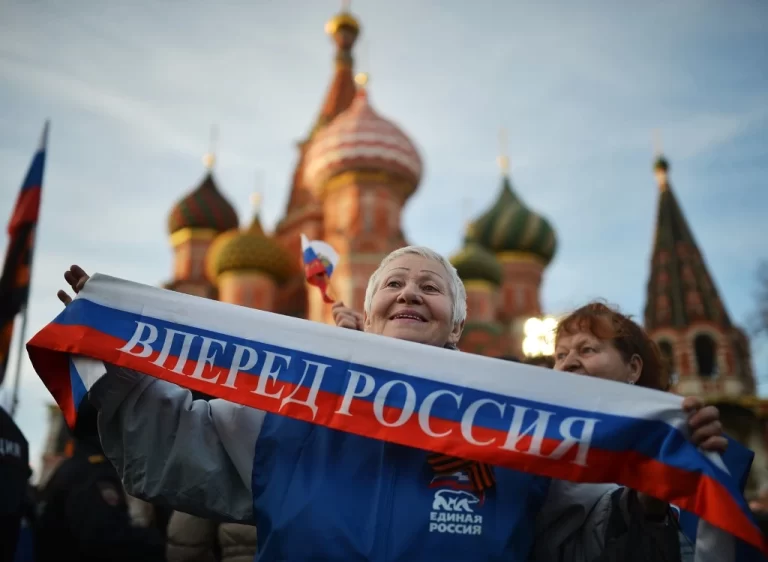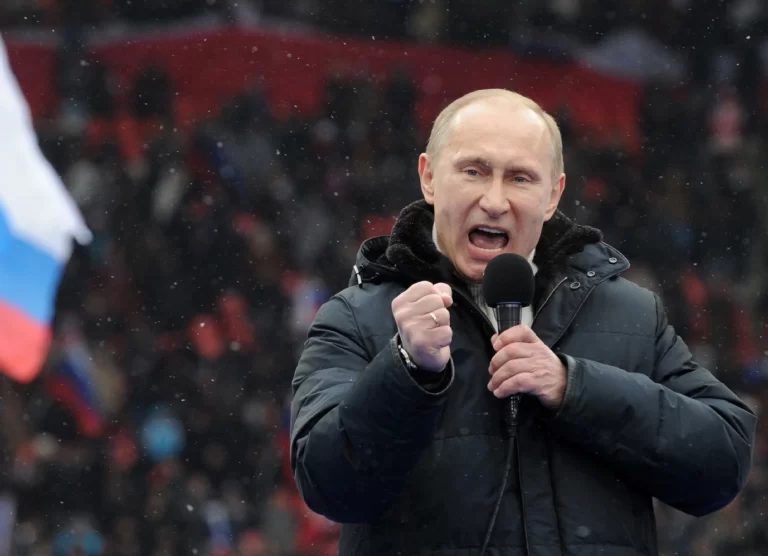The Russia-Ukraine war has dragged on, leading to the emergence of preconditions for tempering emotions and transitioning towards a pragmatic and peaceful resolution of the bloody conflict by the end of 2023. The mainstream notion of collective responsibility for all Russians impedes European governments from engaging in constructive dialogue to achieve peace in which Russians and Ukrainians, along with all other Western European nations, can coexist. However, moving from an emotional “reaction” to the war to finding a solution seems high time.
Is Peace Advocacy on Russia-Ukraine Conflict the Trump Card for 2024 Race?
The Russia-Ukraine war has dragged on, leading to the emergence of preconditions for tempering emotions and transitioning towards a pragmatic and peaceful resolution of the bloody conflict by the end of 2023. The mainstream notion of collective responsibility for all Russians impedes European governments from engaging in constructive dialogue to achieve peace in which Russians and Ukrainians, along with all other Western European nations, can coexist. However, moving from an emotional "reaction" to the war to finding a solution seems high time
Former U.S. President Donald Trump and ex-advisor to the Ukrainian President, Alexei Arestovich, have emerged as bold voices on this matter. Trump consistently advocates for swift peace negotiations, asserting that he could resolve the issue within 24 hours. As an entrepreneur, not a politician, he firmly believes that the war obstructs economic growth, global markets, investments, and long-term planning. Trump suggests making separate deals with Russia and Ukraine and bringing them to peaceful negotiations. Moreover, he proposes motivating both sides with financial incentives: threatening Putin that if he continues the war, the U.S. will provide Ukraine with enough financial support to win the war convincingly while offering Ukraine more money if the war ends.
In contrast to the Biden administration’s official rhetoric of defending democracy in Ukraine, the Republicans display a pragmatic approach, emphasizing that the expenses of the war are too substantial and resolving the “territorial conflict” between Russia and Ukraine does not align with U.S. national interests.
Former advisor to the Ukrainian President, Alexei Arestovich, was expelled from the Ukrainian government because his suggestion of Russian missiles harming residential buildings in Ukrainian cities not directly by Russian missiles but by Ukrainian anti-aircraft missile systems was deemed unacceptable. Despite his expulsion, Arestovich remains an influential politician, and his voice may hold significance in Ukraine’s political future.
For several months, Arestovich has expressed an unpopular yet crucial idea that Ukraine must cease “emotional blackmail” towards Western European countries and begin building its partnership potential and sovereign economy. According to Arestovich, Ukrainian heroism results from political and managerial errors made by the Ukrainian government, which must learn to work systematically and stop demanding money from European and American taxpayers while subverting their national interests with their own.
Today, the speeches of Trump and Arestovich appear unpopular and risky due to the harsh censorship against alternative opinions, apart from advocating for war until Ukraine’s victory and the downfall of Putin’s regime in Russia at any cost. However, the war propaganda and dehumanization of Russians have unintended effects. In Russia, people become embittered and rally around Putin’s regime because they have nowhere else to turn. Resisting the Russian regime with strong repressive machinery is also impossible. Meanwhile, in Europe and the United States, taxpayers are growing weary of spending from their national budgets on the war.
Let’s examine the results of public opinion polls. According to data from the European Union’s “Eurobarometer” analytical center, approval for humanitarian aid to those affected by the war and financial support to Ukraine remains high, but it’s gradually declining. For instance, during the winter of 2022-2023, 91% of respondents supported providing humanitarian aid to Ukrainian refugees, but by the spring of 2023, that number had decreased to 88%. The number of people favoring providing financial assistance to Ukraine and imposing sanctions against Russia decreased by two percentage points.
PEW Research studies in the United States show an even more dynamic trend. Over one and a half years of war, the number of people dissatisfied with excessive support for Ukraine from the American budget sharply increased (from 7% to 28%). Simultaneously, the number of Americans believing that the U.S. provides too little support to Ukraine decreased from 42% to 16%. Moreover, only 39% approve of the Biden administration’s response to Russia’s aggression in Ukraine, an eight percentage point decrease from March 2022. Furthermore, Americans’ interest in events in Ukraine is waning, with less than a quarter of Americans paying close attention.
Now let’s look at the public opinion of the conflicting parties – Russia and Ukraine. The American analytical company Gallup conducted surveys. During the military year of 2022, the level of satisfaction among Russians with their economic situation grew to 57%. The approval of the actions of the Russian government also increased from 50% in 2021 to 66% in 2022.
Regarding Ukraine, Gallup data indicate that in September 2022, 70% of Ukrainians supported continuing the war until victory. 91% of Ukrainians believed victory meant the return of all territories, including Crimea, to Ukraine. Warlike sentiments are most pronounced in Western regions of Ukraine, away from the conflict zones. In the Eastern and Southern Ukrainian regions, the number of people desiring war until victory decreased to 56%.
Thus, after a year and a half of Russia’s aggression in Ukraine, voices advocating for peaceful negotiations emerged in the world due to pragmatic considerations to end the killing of people and the destruction of achievements made by several previous generations. American and European taxpayers are growing weary of war expenses. Simultaneously, Ukrainian and Russian societies seem more vigorous and belligerent despite mutual losses. However, in the context of war, we must critically approach the results of sociological surveys in the territories of the warring parties because both countries have strict military censorship.
In conclusion, “messengers of peace” regarding the war in Ukraine might gain political points among voters in the upcoming elections. From this perspective, Donald Trump’s position appears advantageous.






